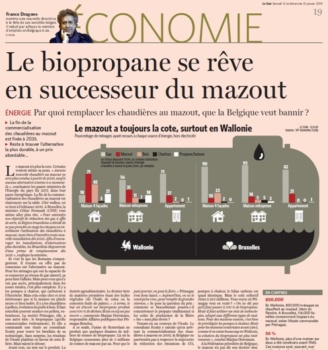Challenge & Vision
Heating oil and coal consumption is high in Belgium, where these emission-intensive fuels are used to heat homes. The Belgium Government has taken steps to tackle fossil fuel consumption, with a 2035 ban on oil boilers proposed. This is in-line with the country’s commitment to tackling climate change.
The energy transition poses risks and opportunities for gas and LPG companies – see Oxford University study.
Conventional LPG is a lower emission alternative to heating oil and coal and could be a transition fuel to deeper decarbonisation. The LPG industry in Belgium is also supporting the development of bio propane, a low-emission fuel which would support deeper decarbonisation and is suited to hard-to-treat properties which have few alternatives. The opportunity therefore is that LPG and bio propane are amongst options to displace existing heating oil consumption.
The risk and challenge is that policymakers might not perceive the LPG industry as having a long-term role in the energy mix, given 2030-2050 targets for emissions. Regulation could restrict LPG before the industry has developed bio propane. Primagaz’s parent company SHV Energy has pledged to supply 100% renewable energy by 2040.
The objective of the project was to consider whether a combination of technologies – LPG boilers, bio propane boilers, electric heat pumps and biomass boilers – could support deep decarbonisation (80%+) of the off-gas grid residential building stock.
The analysis also considered the cost-effectiveness of supporting one technology (electric heat pumps) versus a combination of technologies using data on the Belgian building stock.
Finally, policy recommendations were developed by considering whether the proposed 2035 ban on heating oil boilers is too late to enable deep emission reductions by 2050.



